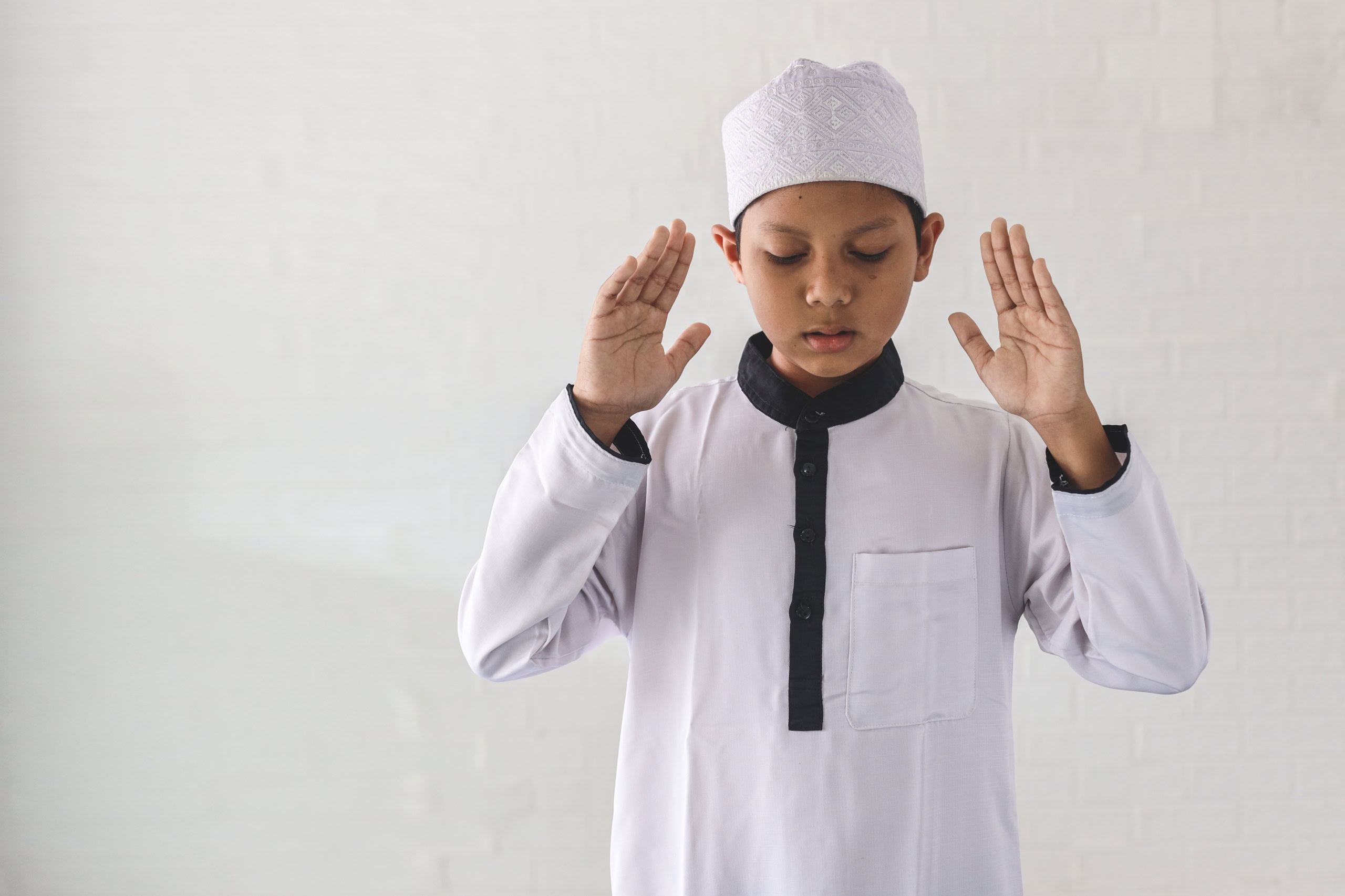Can a Child Lead the Obligatory Prayers?
Shafi'i Fiqh
Answered by Shaykh Irshaad Sedick
Question
In my masjid, there is a 3rd jumu‘a specifically for youth. Today, the imam’s child, who is 12 years old, led the prayer. Is it permissible to pray behind him? If not, would I have to repeat my prayer?
Answer
In the Name of Allah, the Most Merciful and Compassionate. May Allah alleviate our difficulties and guide us to what pleases Him. Amin.
Shafi’i Perspective
In the Shafi’i School, it is considered permissible for a minor (a child who has not yet reached puberty) to lead the Prayer, including the obligatory prayers, provided he has sufficient knowledge of the Quran and the fiqh of prayer, and he can perform it with the proper conditions and pillars intact. Still, an adult imam is preferred over a child.
This allowance is based on the premise that the primary qualifications for an imam in obligatory prayers are knowledge of the Quran and the ability to perform the prayer correctly. [Keller, Reliance of the Traveller]
Sequence of Eligibility to Lead the Prayer
The one with the right to be imam (in order of preference, when there is a disagreement) is:
(1) the most learned in Sacred Law (i.e., the rulings concerned with prayer) even if he has not memorized any of the Quran except the Fatiha, since the need in prayer for knowledge of its rules is practically unlimited, while the only Quran recital required is the Fatiha)
(2) he who has memorized the most Quran
(3) the most Godfearing (O: because leading the prayer is an embassage between the servant and Allah Most High, and best befits him most honored by Allah)
(4) he who has been a Muslim longest
(5) the noblest in lineage
(6) he with the best life history or reputation
(7) the cleanest in-person and clothes
(8) he with the best voice
(9) and the most handsome [Keller, Reliance of the Traveler]
When More than One Eligible Imam is Present
When only one of the above is present, he is chosen. If all people present or some possess one or more of these characteristics, then someone from the first of the list takes priority over those listed after him. If two are equal and each insists on being the imam, they draw lots.
Preference and Priority
It is permissible for a less qualified person to lead, even when a better-qualified one is present. The imam assigned to a mosque or a person living in the house where the prayer takes place, even if only renting, takes precedence over everyone on the list, from the most learned on down. However, he may select anyone else he wishes to lead the prayer. The Sultan and those under him, of Islamic judges, regional governors, and so on, take precedence over even the imam of the mosque, the householder, and others. [ibid.]
The following take precedence even when the latter is more learned in Sacred Law:
(1) a non-traveller over a traveller
(2) an upright person over a corrupt one
(3) and an adult over a child.
A sighted and a blind person are equally eligible to lead the prayer. [Keller, Reliance of the Traveler]
Hanafi Perspective:
The Hanafi School holds a stricter view on this matter. Please consult this answer by Shaykh Abdurrahman al-Kharsa.
Given Your Situation:
Considering you belong to the Hanafi school of thought and the imam in question is a 12-year-old child (presumably not having reached puberty), you may want to consider adopting the Shafi‘i view in this matter.
Otherwise, it would not be permissible for you to pray behind a child for obligatory prayers, including the Jumu‘a Prayer, according to Hanafi principles. Consequently, you would need to repeat your Prayer to ensure it meets the requirements of your School.
Finding Solutions
It’s important to approach such matters with understanding and respect for the diversity within Islamic jurisprudence. If possible, discussing your concerns with the leadership of your mosque could provide a solution that accommodates the needs and preferences of all congregants. Respecting the variations in Islamic legal thought enriches the communal practice of Islam and fosters unity and respect among its followers, and Allah knows best.
I pray this is of benefit and that Allah guides us all.
[Shaykh] Irshaad Sedick
Checked and Approved by Shaykh Faraz Rabbani
Shaykh Irshaad Sedick was raised in South Africa in a traditional Muslim family. He graduated from Dar al-Ulum al-Arabiyyah al-Islamiyyah in Strand, Western Cape, under the guidance of the late world-renowned scholar Shaykh Taha Karaan (Allah have mercy on him), where he taught.
Shaykh Irshaad received Ijaza from many luminaries of the Islamic world, including Shaykh Taha Karaan, Shaykh Muhammad Awama, Shaykh Muhammad Hasan Hitu, and Mawlana Abdul Hafeez Makki, among others.
He is the author of the text “The Musnad of Ahmad ibn Hanbal: A Hujjah or not?” He has been the Director of the Discover Islam Centre and, for six years, the Khatib of Masjid Ar-Rashideen, Mowbray, Cape Town.
Shaykh Irshaad has fifteen years of teaching experience at some of the leading Islamic institutes in Cape Town). He is currently building an Islamic podcast, education, and media platform called ‘Isnad Academy’ and has completed his Master’s degree in the study of Islam at the University of Johannesburg. He has a keen interest in healthy Prophetic living and fitness.
